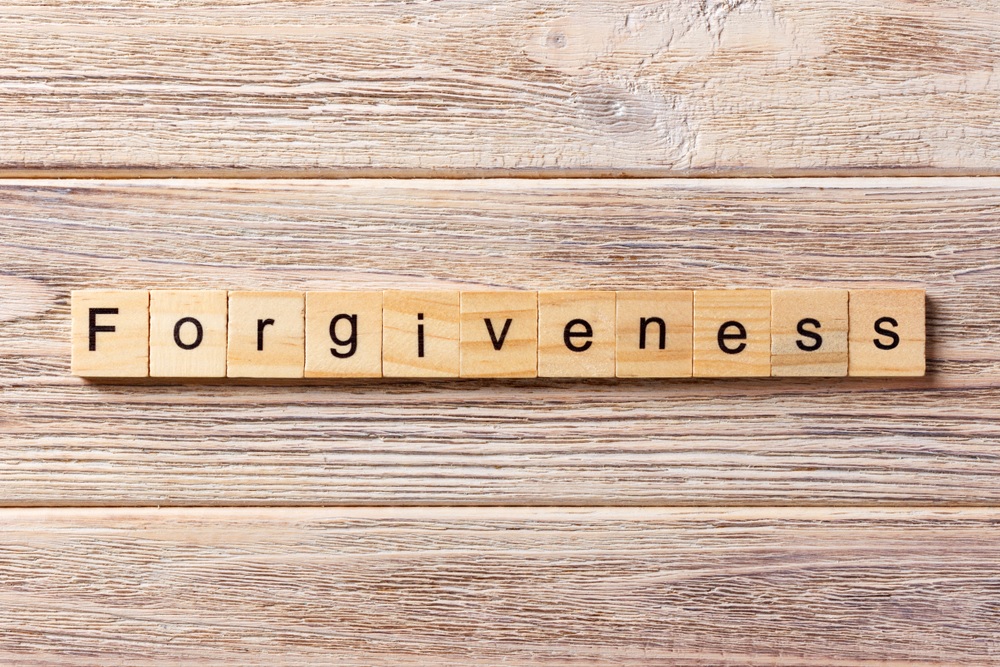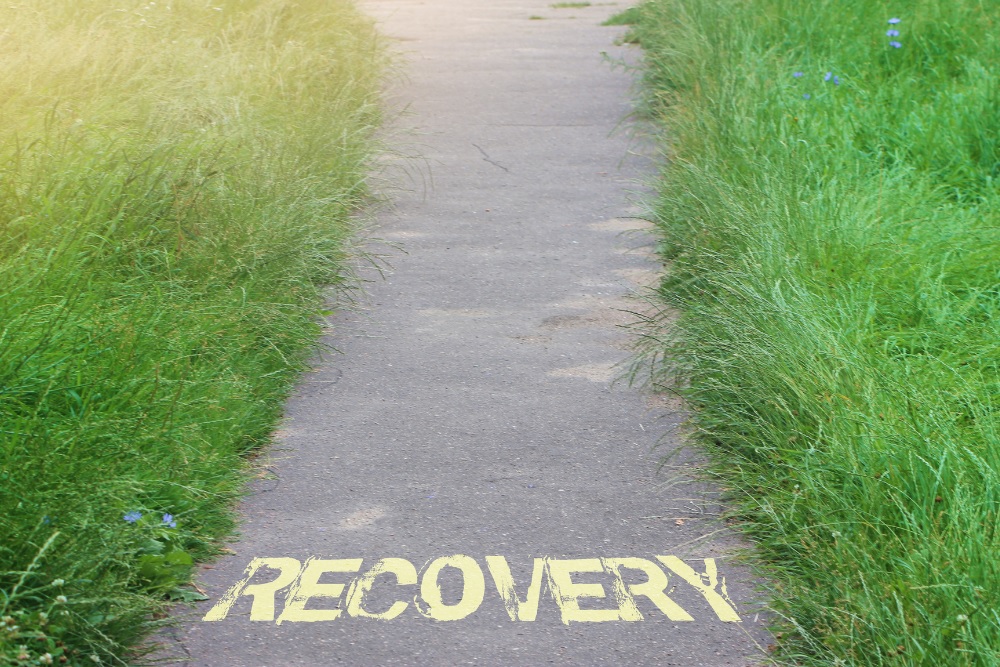Forgiveness in recovery is not just a vital component of the process; it’s a necessity. What is the role of forgiveness in addiction? Why do addicts need to forgive themselves? Who do they need to ask for forgiveness from? And how should they go about doing so?
Here, we explore what causes someone to become an addict, and then we can dive into the role of forgiveness in recovery.
The Relationship between Forgiveness and Addiction
Drug addiction is a lifelong journey affecting over 9.4 million US adults [1] each year.
There are various causes of addiction. Some addicts start taking a drug to relieve painful symptoms from a physical injury and eventually become addicted. Others turn to drugs to numb emotional pain. Alcohol can be a little trickier because it’s such a big part of everyday life and is more socially acceptable. Some people may start out as social drinkers and become dependent on alcohol because of stress, trauma, or other painful emotional or physical experiences.
Impact of Addiction
Addicts usually cause a lot of emotional turmoil to others while indulging in their drug of choice. Some of their closest relationships with family and friends may be irreparably damaged. Substance abusers often have or develop mental health issues during their active addiction. These issues combined with the harmful effects of addiction often take an enormous toll on their loved ones.

Why You Need Forgiveness from Others
Recovering addicts generally do much better with the support and encouragement of loved ones. Unfortunately, for some people, the damage caused to the ones closest to them is sometimes insurmountable. Addicts are not always in control of their actions while under the influence and may do terrible things. Examples include stealing from loved ones or completely abandoning their family and responsibilities. It can be very painful to deal with these betrayals and work past them.
You have to realize that you spent years causing heartbreak and hurt. It may take years of staying clean and sober before you earn that trust back.
So how can a recovering addict face the possibility that there is no forgiveness forthcoming from someone they desperately need it from? Some addicts may be in denial and feel no harm was done to others during their active addiction. Many memories may be erased or forgotten due to blackouts or mental illness.
Recovery is a good time to reflect and really think back over the past and what changes have taken place in your relationships because of addiction. Some addicts lose contact with everyone and totally isolate themselves. The alcohol or drug becomes their best friend.
How to Ask for (and Receive) Forgiveness in Recovery
Learning how to forgive an alcoholic or drug addict is a challenge for many people. What steps can an addict take to get forgiveness in addiction recovery?
1. Acknowledge Your Achievements
You have to work on your sobriety first and foremost. It may seem selfish to focus on your needs before everyone else’s, but it’s crucial to your sobriety, especially in the beginning. It’s a huge accomplishment in and of itself to get to the point where you are free of your addiction and it doesn’t control you or your life anymore. Bask in that achievement as much as possible. Recognize the strength and perseverance required to get to that point and how far you’ve come.

You’ve completed a residential treatment program and are now alcohol or drug free. The support of your loved ones would make your recovery that much sweeter, but you have many things to be thankful for, such as:
- Ridding your body of all those toxic substances leaves you much healthier and increases your lifespan.
- You’re no longer living life in the dope game.
- You’re no longer anxious or depressed.
- You can sleep peacefully at night without worrying about where to get your next “fix.”
- Your self-esteem and self-confidence gets a boost from understanding your addiction a little better.
- You now know the underlying causes and triggers and how to avoid them.
- Your life is less stressful and more peaceful moving forward.
2. Make a Plan-of-Action
When you’re ready to tackle making amends with loved ones, do an inventory of the people your drug addiction harmed. What is it you need to say or do to get that person to forgive you?
These are things that require much thought and reflection. You can write things down as they come to you. Keep a journal until you’re ready to face the person. Sometimes it’s better to be away from loved ones for a while as you work on your sobriety.
3. Consider Getting Support
Counseling or some form of professional help may help recovering addicts or family members to get past the pain and emotional turmoil. There are also support programs for just about every type of addiction. These groups typically offer one-on-one support, phone support, and online resources. Try to remain positive and hopeful as you work through your issues. Give your loved ones time to do the same while you anticipate reunions with members who aren’t willing to reconnect when you are.
4. Keep Your Eyes on the Goal
Structure is very important for recovering addicts. Make a plan for your daily life and stick to it. Think about your future and focus on short-term goals. Recovering addicts typically feel as if they’re starting from scratch and have to find a new way of living. Keep it simple. You will have a renewed appreciation for life and all the things that were overlooked while in a drug haze or drunken stupor. Cherish every moment. Your friends and family may notice your progress over time, making it easier for you to get forgiveness in recovery.
If and when a loved one decides to forgive you, it’s crucial that you’re consistent and always show up for commitments you make. Apologize for any wrongdoings or attempt to make amends in other ways if necessary. Be patient with your loved ones during the process. Try to be a good listener while they’re “getting things off their chest.”
Friends and family who aren’t ready to repair your relationship or even speak to you should be allowed space and time, even if that moment never arrives.
Forgiving Yourself in Recovery
Forgiveness comes hard for many people. Especially when it comes to forgiving yourself. It’s a process that can take years, but it’s necessary to release feelings of resentment. The 12-step principles in many programs stress the importance of forgiving oneself and others in order to move past the hurt and pain. Many of these issues are actually triggers for addicts, so letting go of them is not only advisable, it’s a necessity. The relief that accompanies forgiveness in addiction recovery allows for a clearer, stronger, and more confident mind.
Achieving Forgiveness in Recovery
While forgiving yourself in recovery and getting forgiveness from your loved ones may not be easy, it’s well worth the effort it takes. You’ve traveled a long way on your journey to sobriety. Recognize how far you’ve come, think about who you need to ask for forgiveness, get professional support if necessary and show your family and friends how you’re on the right track. Forgiveness in recovery will allow you to put the suffering caused by your addiction behind you. Remember, your best chance at finding forgiveness in addiction recovery is by staying clean and sober.
At Avenues Recovery, we are committed to supporting anyone suffering from addiction. We will help you recover from addiction and achieve forgiveness in recovery. If you or a loved one is suffering from a drug or alcohol addiction, reach out to one of our trained outreach coordinators today.

Sources



